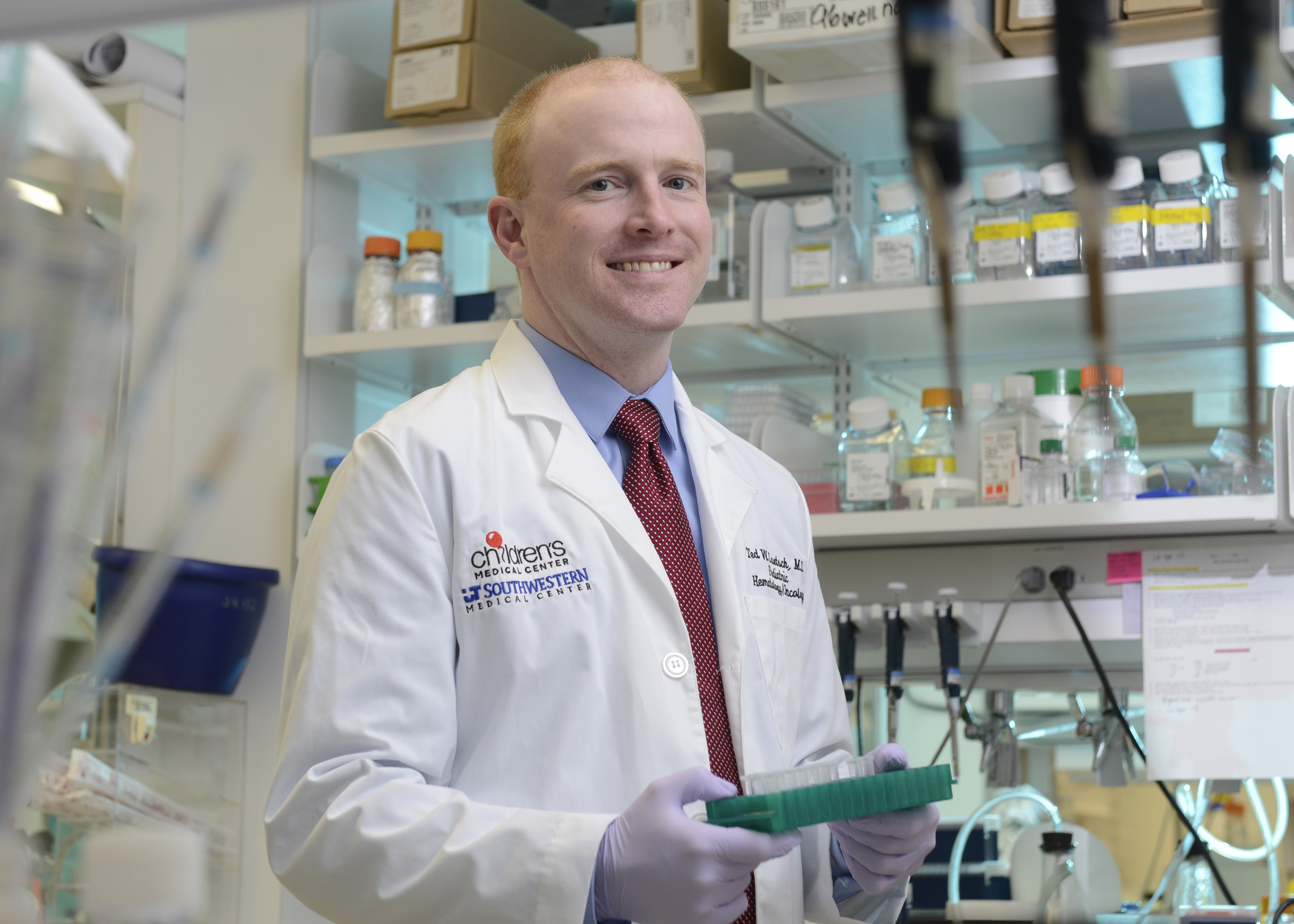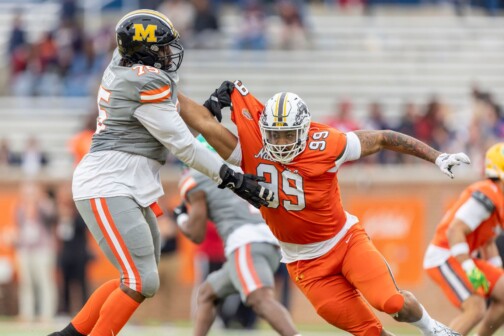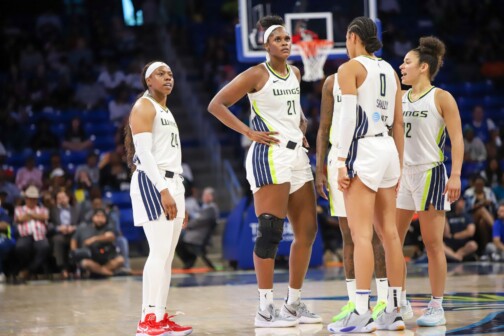
After completing his fellowship in pediatric hematology oncology at Children’s Hospital of Philadelphia in 2012, a younger Dr. Ted Laetsch relocated to Dallas to work at UT Southwestern and Children’s Health. Laetsch, who previously studied agricultural and biosystems engineering at the University of Arizona before completing medical school at the University of California-San Francisco, decided to pursue a career pediatrics to help sick children in need. Now, he practices his craft at Children’s Health while also serving as assistant professor in pediatrics at UT Southwestern.
And, when the red-headed Laetsch isn’t splitting his time between UT Southwestern and Children’s Health, he’s making medical breakthroughs. It was recently announced that Laetsch had served as principal investigator for a Switzerland-based Novartis study, in which T-cells were genetically engineered for the first time to fight blood cancer in children. UT Southwestern and Children’s Health collaboratively served as one of 13 clinical trial sites in the U.S. for the study of so-called CAR T-cell therapy. I spoke with Laetsch about development of this new therapy, how it works, his role in the process, and ultimately what CAR T-cell therapy hopes to achieve in pediatric oncology.
What is CAR T-cell therapy?
“CAR T-cell therapy is an entirely new way to treat leukemia, which we have been fighting here. It was originally developed in Philadelphia at the University of Pennsylvania, and what it does is take out a part of the patient’s T-cells, which is part of their immune-system cells, and in a laboratory we train those cells to attack the infected leukemia cells, and then put T-cells back in the patient. So far, the patients we have treated with this new treatment have seen favorable outcomes.”
It takes awhile to compile data and research new treatment. How long did that process take?
“There’s been ongoing lab research for years, but clinical trials run pretty fast. The first time we tried this experimental therapy on patients was about five years ago. And last week, the Novartis drug company that has been making these cells, presented their data to the FDA’s advisory group on this clinical trial, and we received a unanimous vote to have this moved forward to be approved by the FDA as a regulated form of therapy.”
You were the principal investigator for the Dallas clinical site location. What led Novartis to select UT Southwestern and Children’s Health for this?
“Novartis, which sponsored the study, had 25 sites across the world where they were testing this, and 13 were in the U.S. So UT Southwestern and Children’s Health were selected to be one site, and I’m the principal investigator for the Dallas-Fort Worth site.
“How it works is that they chose [viable] lab sites that have high recommendations. I was chosen because I previously worked in Pennsylvania … with the team that initially developed this idea, so I was selected to continue work here with my knowledge and experience from there. I led the two teams from UT Southwestern and Children’s in our research here.”
Now that it’s been approved by the advisory group, when do you think it will be approved by the FDA?
“The FDA considers and usually follows the recommendation once the FDA advisory group approves of the treatment. But the FDA pledged to review the drug and expedite its approval in an appropriate manner, which means by early fall it should be approved.”
Overall, how has this experience been to lead the teams in Dallas and further this leukemia treatment?
“It’s really amazing to get to see new therapy and try to help out patients. These kids have very few options, and it’s been remarkably successful. It’s been a great honor to be a part of it.”





